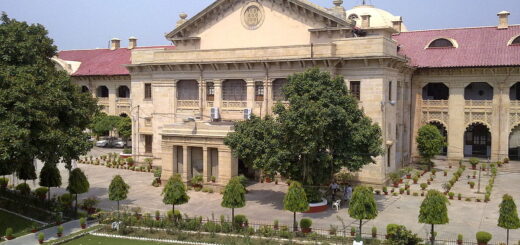Is a Short Interview Enough to Evaluate a Candidate’s Fit? Supreme Court Raises Issues About the Senior Advocate Designation Process.

The Supreme Court of India has issued important guidelines for Advocates-on-Record (AoRs) about their professional duties and raised issues with the current process for designating Senior Advocates. Justices Abhay S. Oka and A.G. Masih delivered this ruling, highlighting the need for AoRs to be accountable and questioning the effectiveness of the current point-based system for Senior Advocates. Greater Accountability for Advocates-on-Record Justice Oka pointed out that if an Advocate-on-Record submits a petition they did not draft, they are still fully responsible for its content. He stressed that AoRs must carefully review all case documents and confirm the accuracy of the facts before filing.
“When an Advocate-on-Record files a petition they did not draft, they are completely responsible to this court. It is their duty to examine the case papers and the petition to ensure the facts are correct,” Justice Oka explained. Additionally, the Bench stated that an AoR’s responsibilities do not stop after filing a case. Even if the arguing counsel is not present, the AoR should be ready with relevant case law and facts to support the Court effectively. The Court also warned that AoRs who behave inappropriately may face consequences under Rule 10 of Order IV of the Supreme Court Rules.
The Bench raised concerns about the process for designating Senior Advocates, pointing out significant issues. They questioned if a short interview is enough to determine an advocate’s fitness for this title. Justice Oka noted, “It’s uncertain if a few minutes of questioning can truly assess a candidate’s suitability. Even if the Permanent Committee members are aware of a candidate’s lack of integrity, they cannot lower their score based on that.” The point-based evaluation system, which looks at candidates’ judgments, legal writings, and books, was also examined. The Court doubted whether the Permanent Committee could realistically review all submitted materials and if this method was fair.
Justice Oka further stated, “Candidates provide numerous judgments, articles, and books. It’s worth considering if the Permanent Committee members can thoroughly review all these documents and spend countless hours on one candidate.” The Court has left it to the Chief Justice of India to decide if a larger bench should address the issues related to the Senior Advocate designation process.
Previously, the Supreme Court Advocates-on-Record Association (SCAORA) had raised similar concerns. The Court has now instructed the Registry to organize an open discussion next week to further explore the responsibilities of Advocates-on-Record and the Senior Advocate selection process.
Cause Title: Jitender @ Kalla v. State (Govt.) of NCT of Delhi [SLP(Crl) No. 4299/2024; Diary No. 12735/2024]









